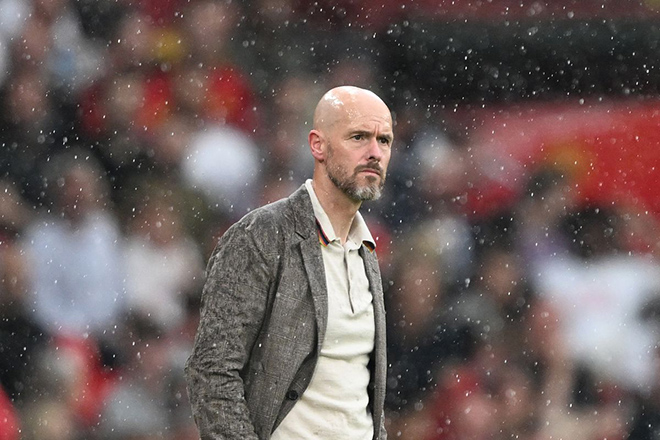 1977- Volodymyr Bezsonov
1977- Volodymyr Bezsonov
Bezsonov won this award for USSR; the Soviet Union were crowned champions that year. He went on to live up to his billing, winning the Ukrainian player of the year award three times. He featured in three World Cups. He won every club honor on offer with Dynamo Kiev and went on to finish finalist in the Euros with his country in 1988.
1979- Diego Maradona
This man needs no introduction. He went on to become a true great of the game. He won the World Cup with Argentina of course and went on to win many honors with his clubs Boca Juniors, Barcelona and Napoli. Individual awards of course came flying to him including the FIFA Player of the Century in 2000. His personal life was littered with problems previously and continues to be. He spent a short time managing his country Argentina as well.
1981- Romulus Gabor
Romania lost to West Germany in an epic contest after extra time, 1-0 in the semifinals, in 1981. They collected the Bronze medals after beating England 1-0. Romulus Gabor lit up the tournament and was duly awarded the Golden Ball. However, his career did not live up to the expectations. He retired in 1997 when he was plying his trade in the Romanian third division. However, many of you might recognize the person who won the Silver Ball in that tournament- a certain Michael Zorc of Borussia Dortmund.
1983- Geovani Silva
Geovani Silva of Brazil did not live up to his billing as well after winning this award. His only spells abroad came at Bologna in Italy and Karlsruher in Germany. He won several club titles in South America before hanging up his boots in 2002. Sadly enough, he was never given the chance to feature in Brazil’s favorite tournament, the FIFA World Cup. He did pick up a silver medal in the Olympics though in 1988.
1985- Paulo Silas
Silas currently spends his time in coaching. He featured for Brazil in two World Cups, the 1986 and 1990 editions. He spent most of his playing career in South America, venturing out only to Portugal for a short time and to Sampdoria for a short spell. Again, Silas did not manage to live up to the hype surrounding his name.
1987- Robert Prosinecki
Prosinecki won the award for Croatia. He played for various wonderful clubs throughout his career. He started off his youth career in West Germany, where he was born. He starred for Stuttgart Kickers. Later, he went on to player for one of the great teams of the early 90’s in Red Star Belgrade, Real Madrid, Barcelona and Sevilla. Later he played in England in Portsmouth, finishing off with NK Zagreb. Injuries hampered this brilliant player’s career, especially at Real. He currently manages in Turkey.
1989- Bismarck Faria
It seems that most Brazilians who won this award did not have great senior playing careers. Bismarck is one more example. He spent his entire playing career in Brazil, winning few honors. His best spells came in Japan, where he ended his playing career in 2003. The midfielder was a member of the Brazilian national side which won the Copa America in 1989. He featured in the 1990 World Cup as well.
1991- Emilio Peixe
The Portuguese star was billed to be a great when he graduated from Sporting CP’s youth academy. However, a move to Sevilla in 1995 started to see his career go down. He had a long spell with Porto afterwards where he hardly featured. Following that spell, two poor spells with Benfica and Uniao Leiria forced him to retire. He is currently in charge of the U-16s of the national side. He finished fourth with his country in the 1996 Olympic Games.
1993- Adriano da Silva
Adriano da Silva did not match his hype at all. He spent most of his playing career in South America. He never featured for the national side despite his exploits for the U-20s. He also had a spell in Japan with Urawa Red Diamonds.
1995- Caio Ribeiro
Caio also spent most of his career in Brazil. Due to holding dual citizenship (Italy and Brazil), he played in Italy as well featuring for Inter Milan in an ill-fated one year spell and Napoli for another poor single season spell. He featured in the lower leagues in Germany for a very short time in 2004 for Rot Weiss Oberhausen. He made only four appearances for the senior Brazilian national side.
1997- Nicolas Olivera
Olivera won the award for Uruguay. He went on to make 28 appearances for the national side, scoring eight times. He was quite a small player. He had spells in Spain for Sevilla, Real Valladolid and Cordoba. He spent most of his career jumping form club to club in South America. He was an used squad member at the 2002 FIFA World Cup.
1999- Seydou Keita
Keita did live up to the hype surrounding his name. The Malian international who also holds a French passport played for Marseille, Lorient and Lens before moving on to Sevilla. He impressed and earned a transfer to Pep Guardiola’s Barcelona where he lifted the UEFA Champions League. He had an impressive four year spell before leaving for China. With Mali, he finished third in the Africa Cup of Nations twice, 2012 and 2013.
2001- Javier Saviola
Saviola had an impressive playing career, starring for River Plate, Barcelona, Monaco, Sevilla, Real Madrid, Benfica and currently Malaga. The diminutive star however, many feel, could have done better in his long playing career. He featured 40 times for his nation, Argentina, striking 11 times. He won the Portuguese Golden Ball in 2010 and the Argentine Player of the Year Award in 1999; he was also presented with the South American Footballer of the Year Award that season.
2003- Ismail Matar
Ismail Matar remained in the UAE throughout most of his career. He spent almost his entire career in Al-Wahda, including his youth. He only had a loan spell in Al Sadd in between in Qatar. Matar is now 30 years old. He has made 90 appearances for the UAE national side, scoring 28 times. He is still going strong. He wears the Number 10 jersey as his talent commands.
2005- Lionel Messi
Again, the diminutive Argentine needs no introduction whatsoever. He went on to become one of the greats, if not the greatest of all time, following the FIFA U-20 World Cup in 2005. The Barcelona man has innumerous individual awards including three FIFA Ballon d’Or awards won in 2010, 2011 and 2012. He won the award in its old format (Ballon d’Or) in 2009. He won three UEFA Champions League trophies, in 2006, 2009 and 2011.
2007- Sergio Aguero
Aguero has had a wonderful career since winning the FIFA U-20 Golden Ball. He starred for Atletico Madrid, winning the UEFA Cup and lighting up La Liga on the way. He moved to Manchester City in 2011 and won the Premier League in 2012; he scored the goal which won City the competition in dramatic fashion. He was voted the club’s Player of the Year in 2012. He has featured 45 times for the senior Argentina side, scoring 18 goals.
2009- Dominic Adiyiah
The 23 year old Ghanaian is currently starring for Arsenal Kyiv in the Ukrainian Premier League. He is a graduate of the Feyenoord Academy. His move to Milan in 2010 proved disastrous as he was shipped for loan spells to Reggina, Partizan, Karsiyaka and Arsenal Kyiv without ever playing a single minute for the Italians. Adiyiah has scored four goals for his country’s senior national side in 18 appearances.
2011- Henrique
Brazilian Henrique is the most recent winner of this award. He currently plays for Botafogo. His spell in Sao Paulo was marked by loan spells in Vitoria, Granada and Sport. He only struck once for Sao Paulo in 14 appearances. The 22 year old of course has time on his side and could go on to become a great. He almost had a spell in QPR in 2012 but the FA denied his move to England.
Who do you think will win the award this time? Let us know your thoughts!





























